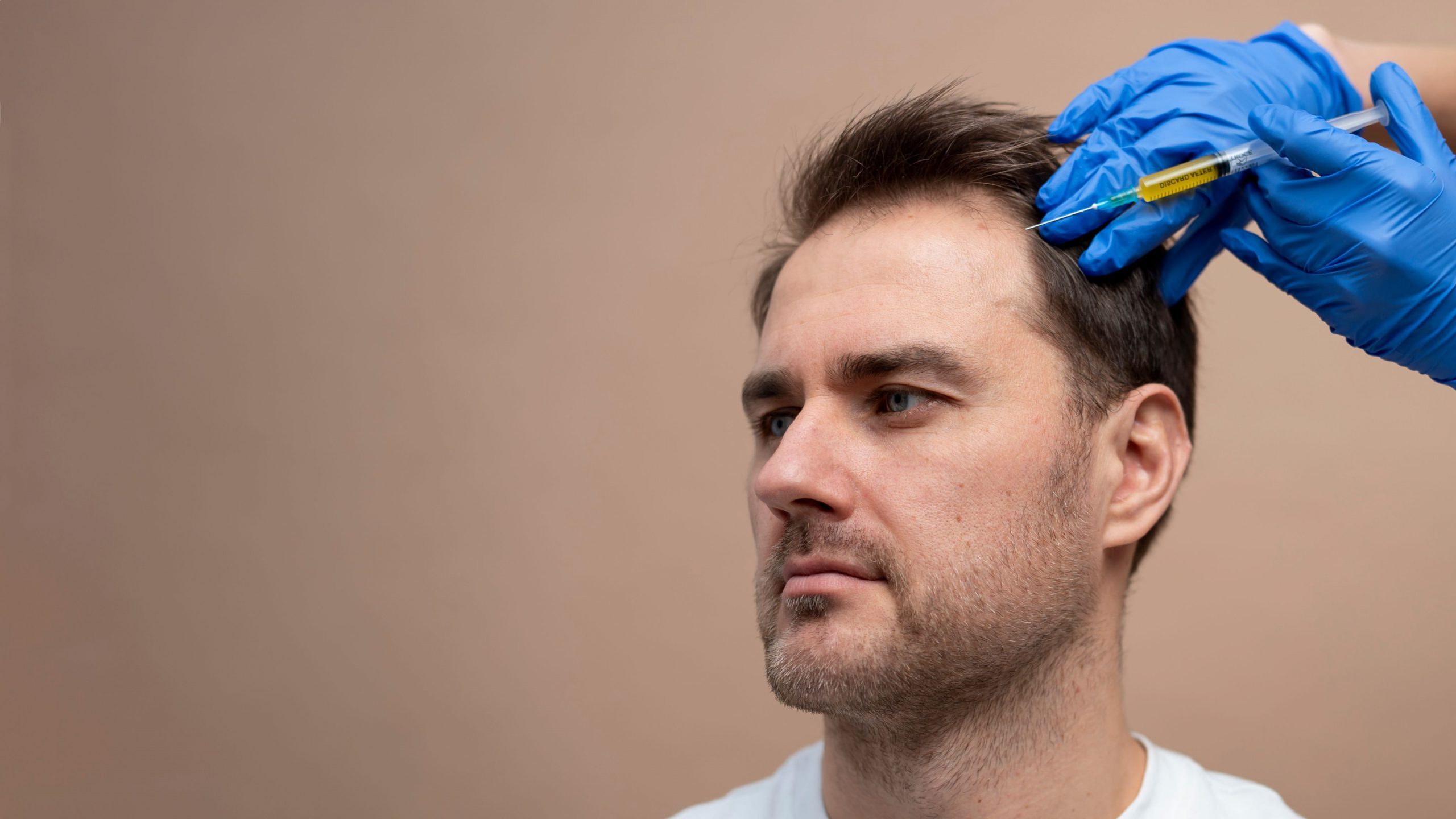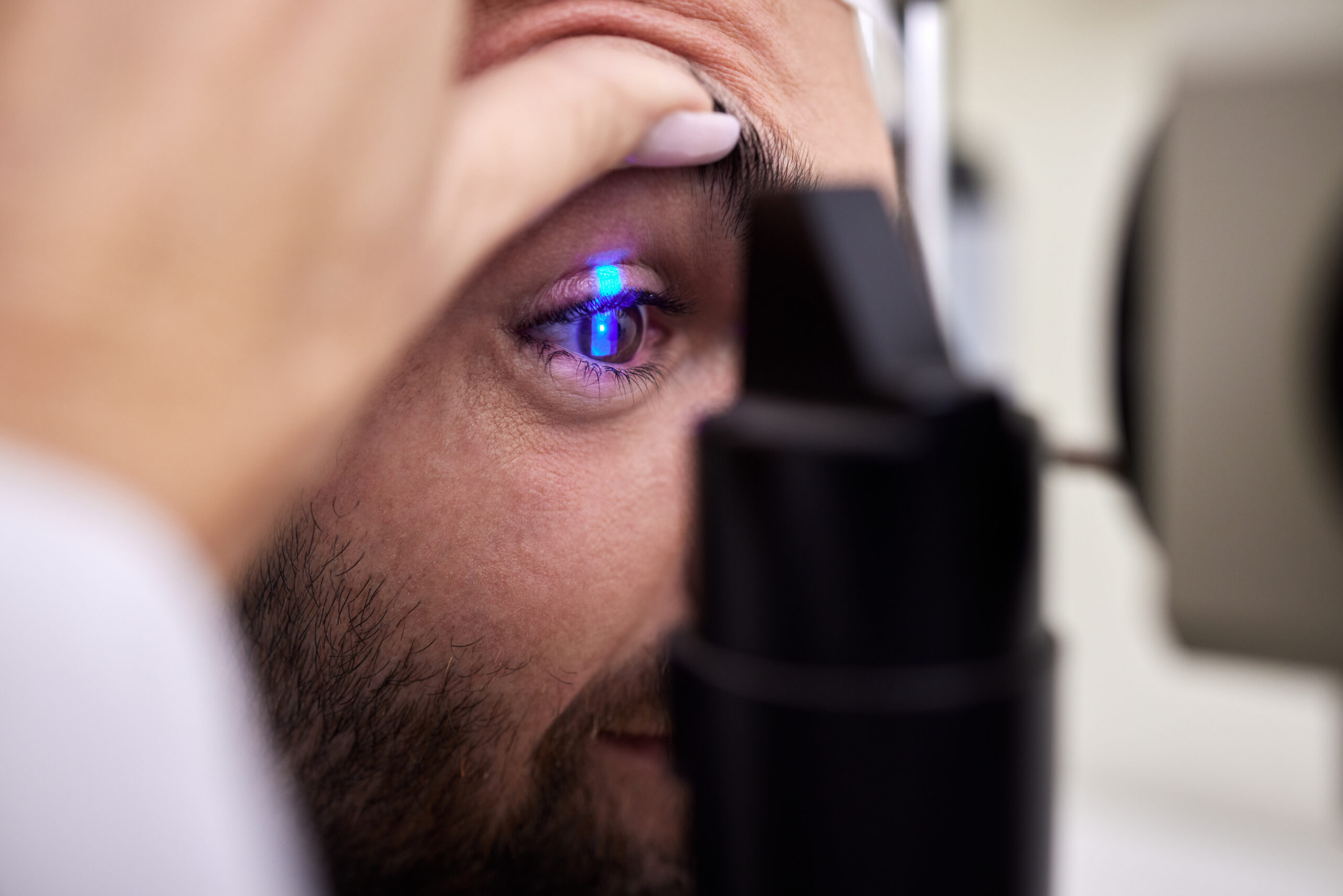Hair Transplant
Frequently Asked Questions
Who can have a hair transplantation?
Hair transplantation can be applied to many people who have hair loss and have healthy hair follicles. Hair follicles must be healthy and sufficient for hair transplantation. Chronic health problems or serious medical problems can be an obstacle for hair transplantation.
How is hair transplantation performed?
The hair transplantation procedure starts with an assessment by a hair transplant specialist to determine the extent of the patient’s hair loss and to create an appropriate treatment plan. Before the procedure, local anaesthesia is administered to the hair transplantation area, to ensure the patient’s comfort and prevent any pain or discomfort.
Typically, hair follicles are harvested from the back of the head (the nape area) due to the robust and permanent nature of the follicles in this region. Small incisions or channels are then carefully created in the recipient area, outlining where the hair follicles will be transplanted. Subsequently, the collected hair follicles are meticulously placed one by one into these prepared channels.
A crucial aspect of the hair transplantation process is ensuring that the hair follicles are transplanted at the correct angle and density, contributing to natural-looking results.
How long does hair transplantation take?
The duration of a hair transplantation procedure can vary depending on several factors, including the number of grafts being transplanted and the technique used (e.g., FUE or DHI). On average, a hair transplant procedure can take anywhere from 4 to 8 hours. In some cases, larger or more complex procedures may extend beyond this timeframe.
Is hair transplantation procedure painful?
Hair transplantation is usually limited to minimal pain or discomfort as local anaesthesia is usually applied. Local anaesthesia numbs the area to be transplanted and prevents the sensation of pain during the procedure. Therefore, it is rare to feel pain during hair transplantation.
Which methods are available for hair transplantation? Which method may be suitable for me?
Current hair transplantation methods are FUE (Follicular Unit Extraction), DHI (Direct Hair Implantation) and the frequently preferred Sapphire FUE method. Which method is preferred may vary depending on the patient’s individual needs, hair structure, degree of hair loss and suitability for surgery. Therefore, a hair transplant specialist performs an assessment to determine the most appropriate method for the patient.
Is hair transplantation a permanent solution for hair loss?
If a hair transplant is performed by the right individuals, the results are generally permanent and last a lifetime. However, these results can vary depending on a person’s genetic predisposition. While some individuals may experience new hair growth after a hair transplant, the risk of hair loss in other areas due to genetic factors may persist.
Proper post-transplant care and attention to hair health can influence the long-term success of the results. It is important to follow the care instructions recommended by the specialist.
Am I a suitable candidate for hair transplantation? Which criteria should I have for hair transplantation?
In order to undergo hair transplantation, your hair follicles, which are usually taken from the nape area, must be intact and in good health. It is best to consult a hair transplant specialist to determine whether you are a suitable candidate for hair transplantation.
You can contact us for a free hair analysis and to get detailed information.
I'm thinking about hair transplantation. What should I pay attention to?
If you are considering hair transplantation, the most important step is to choose an experienced and expert company. You should research about the company’s past successes, references and experience in the field of hair transplantation. You should have a detailed consultation with your doctor before the procedure and share your expectations.
What is the price of hair transplantation?
The price of hair transplantation can vary depending on many factors and it is difficult to give a general price. The hair transplantation technique used is an important factor affecting the price of hair transplantation. The amount of hair to be transplanted also determines the cost. Transplanting more hair follicles may increase the cost of the procedure. The service quality of the hair transplant clinic and the expertise of your doctor can also affect the price of hair transplantation.
How should care be done after hair transplantation?
After hair transplantation, you should follow the hair washing instructions recommended by your doctor and use the medications prescribed by your doctor regularly. During the first few weeks, you should avoid heavy sports activities and stay away from alcohol and smoking. These substances may slow down recovery.
Is hair transplantation risky?
Hair transplantation is a very safe and effective procedure when performed by an experienced hair transplant specialist and proper care instructions are followed. There is a risk of infection during or after hair transplantation. Post-procedure infections can usually be treated with antibiotics, but this risk is minimal. Redness, swelling and tenderness may be experienced in the procedure area for a few days. These symptoms are temporary and decrease during the healing process.
Can I get a natural look as a result of hair transplantation?
During hair transplantation, the hairline must be designed correctly. This ensures that the newly transplanted hair is compatible with the natural hairline. The experience and expertise of your doctor who will perform the procedure is important. An experienced hair transplant specialist will have the necessary aesthetic skills to achieve natural results.
The techniques used for hair transplantation can affect the results. Especially Sapphire FUE technique is a preferred method to achieve natural results.
How long does the healing process take after hair transplantation?
Immediately after the hair transplantation procedure, mild swelling, redness and tenderness may be experienced in the procedure area. These symptoms usually subside within a few days. In the first week, crusting and crusting in the procedure area may be followed by hair loss. During the first month, the transplanted hair follicles may enter the resting phase and some hair may fall out.
This is part of the hair loss after hair transplantation. However, this loss eventually makes room for new hair growth.
Will I experience hair loss after hair transplantation?
You are likely to experience a temporary hair loss after hair transplantation and this is often referred to as “shock loss”. However, this does not mean permanent hair loss. The transplanted hair follicles usually come out of the resting phase and start the growth of new hair. During the healing process after the procedure, this loss ends and new hair is expected to grow.
Which doctors or clinics should I prefer for hair transplantation?
Hair transplantation is a field that requires experience. Choosing a doctor or surgeon who is experienced and specialised in hair transplantation will help you achieve better results. Check the testimonials and reviews given by previous clients of the doctor or clinic. This can help you get an idea about the doctor’s or clinic’s track record of success.
Who Cannot Have Hair Transplantation?
Those with serious health problems, especially conditions such as heart disease and diabetes, should be evaluated by specialists before hair transplantation. If the donor hair is not sufficient for hair transplantation, the procedure may fail. Therefore, the quantity and quality of donor hair should be carefully evaluated.
Should I wait until I am completely bald to have a hair transplant?
Instead of waiting until you are completely bald to have a hair transplant, starting the hair transplantation process at an early stage can provide better results. As hair loss progresses, the number and quality of hair follicles may decrease, so early intervention can positively affect the results of hair transplantation.
What is the Importance of Age Factor in Hair Transplantation?
The donor hair required for hair transplantation comes from the back and side head areas where you can take hair follicles. Hair density in these areas may decrease with age. Therefore, for hair transplant candidates, the age factor is important in evaluating whether the donor hair is sufficient.








